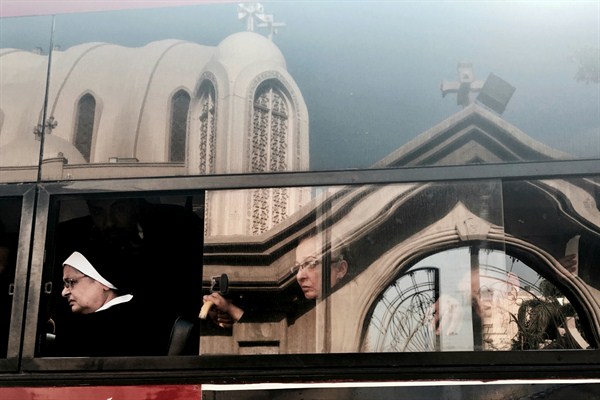A bomb ripped through a church in central Cairo last week, killing at least 26 people in the most brutal and brazen attack on Egypt’s Coptic Christian community in years. The self-declared Islamic State, which has been waging an insurgency against the government in the Sinai Peninsula since 2014, claimed responsibility for the suicide bombing of St. Mark’s Coptic Orthodox Cathedral, the seat of the Egyptian Orthodox Church. It vowed to escalate what it called a “war on polytheism,” a sign that it seeks to stoke more sectarian violence in Egypt and target the country’s beleaguered Coptic minority.
The attack was the worst violence against Egypt’s Christians since January 2011, when a suicide bomber struck a church in Alexandria and killed more than 23 worshippers, just weeks before the protests that ousted longtime President Hosni Mubarak began. Egypt’s Christians have long endured smaller-scale violence, including church burnings, murders, mob attacks and other discrimination. The perpetrators are rarely punished or held accountable.
The bombing was the latest sign that the strongman rule of President Abdel-Fattah el-Sisi, who has promoted himself as Egypt’s only defense against terrorism, is failing to protect Egyptians, including a Christian community led by Pope Tawadros II, the head of Egypt’s Coptic Church, that has been among el-Sisi’s strongest supporters. The attack capped days of unrest in the country, with an explosion at a security checkpoint in Cairo near the pyramids that killed six police officers and another in the town of Kafr el-Sheikh, in the Nile Delta, which targeted police and killed a passerby.

